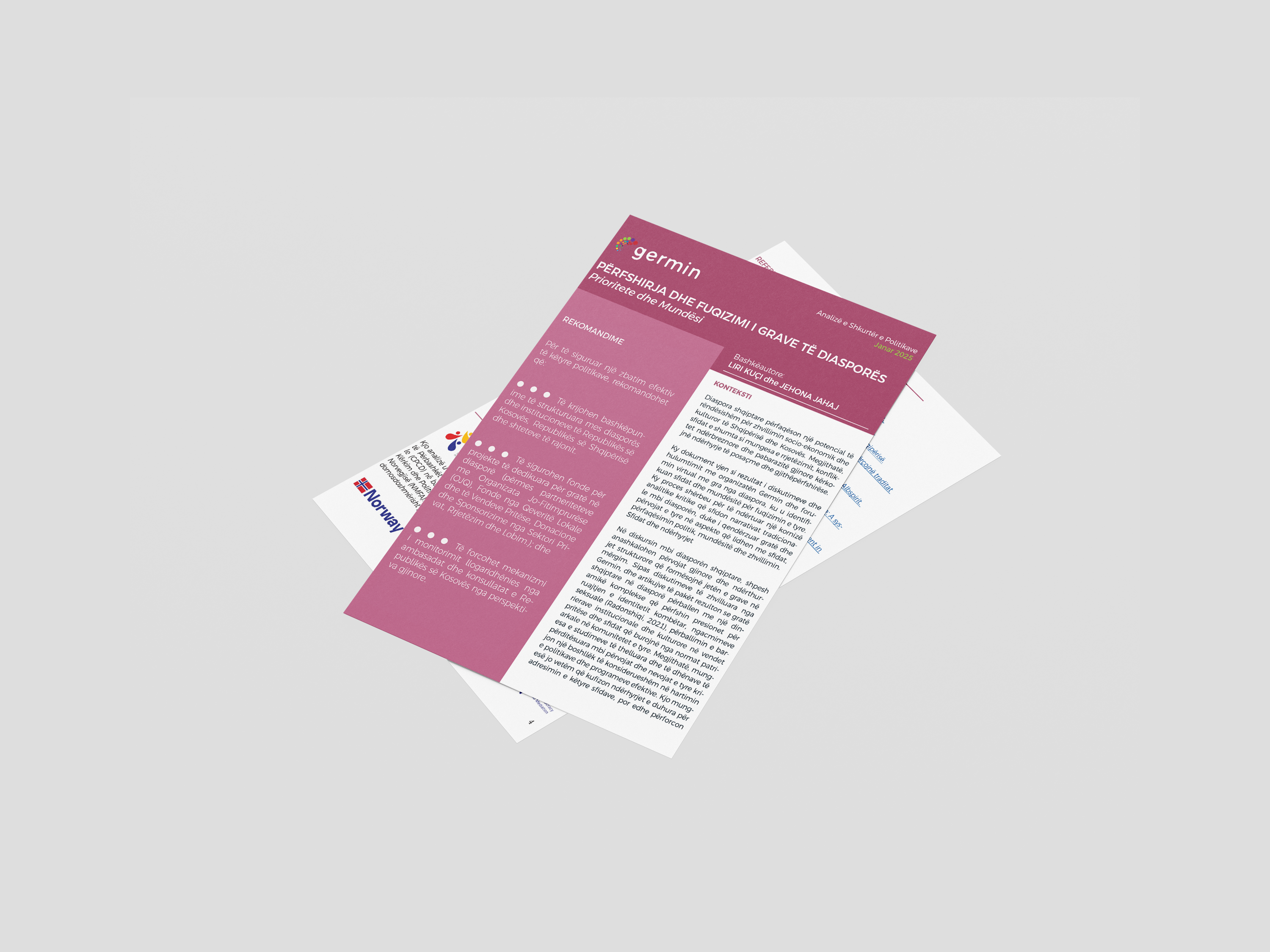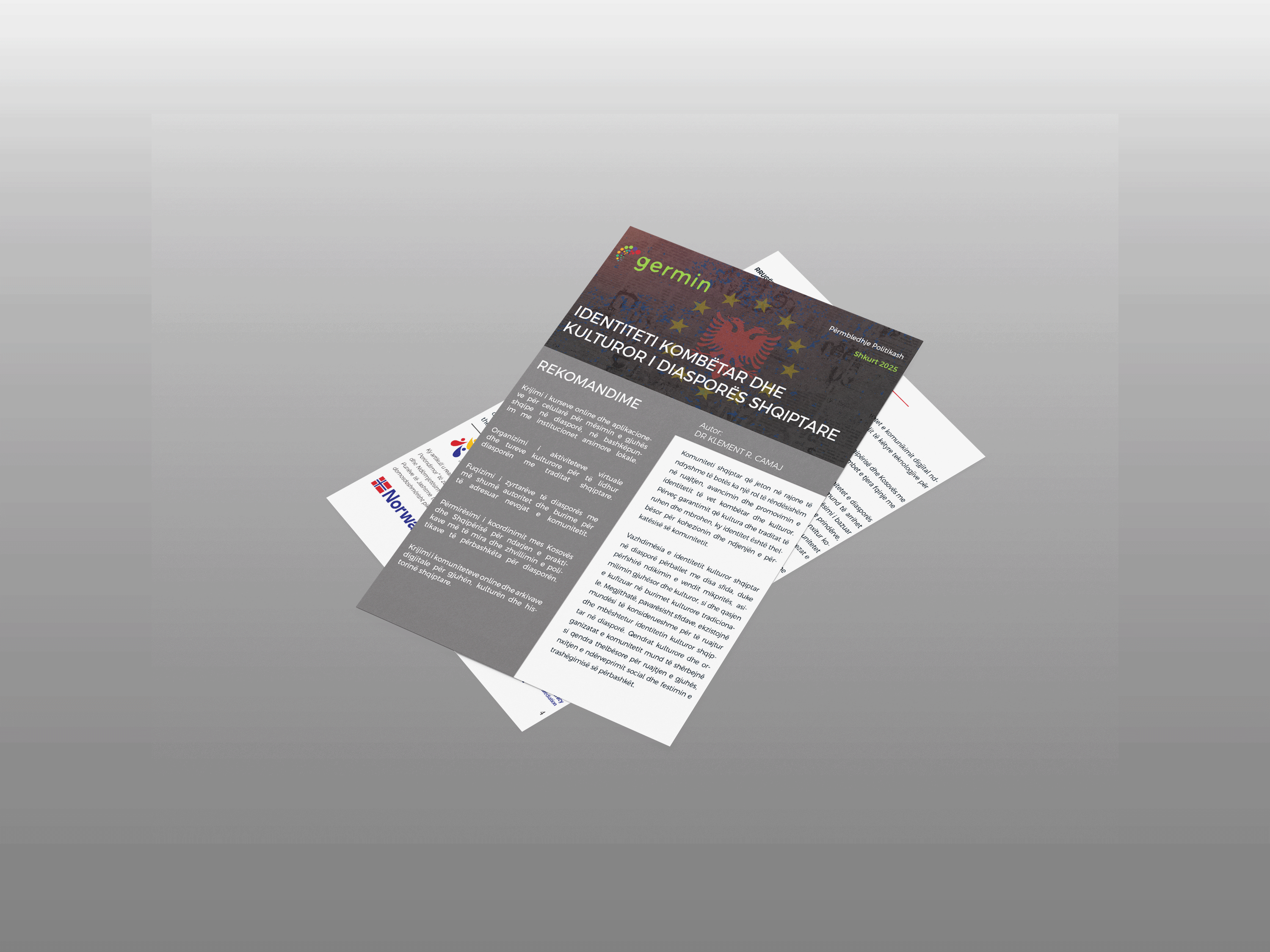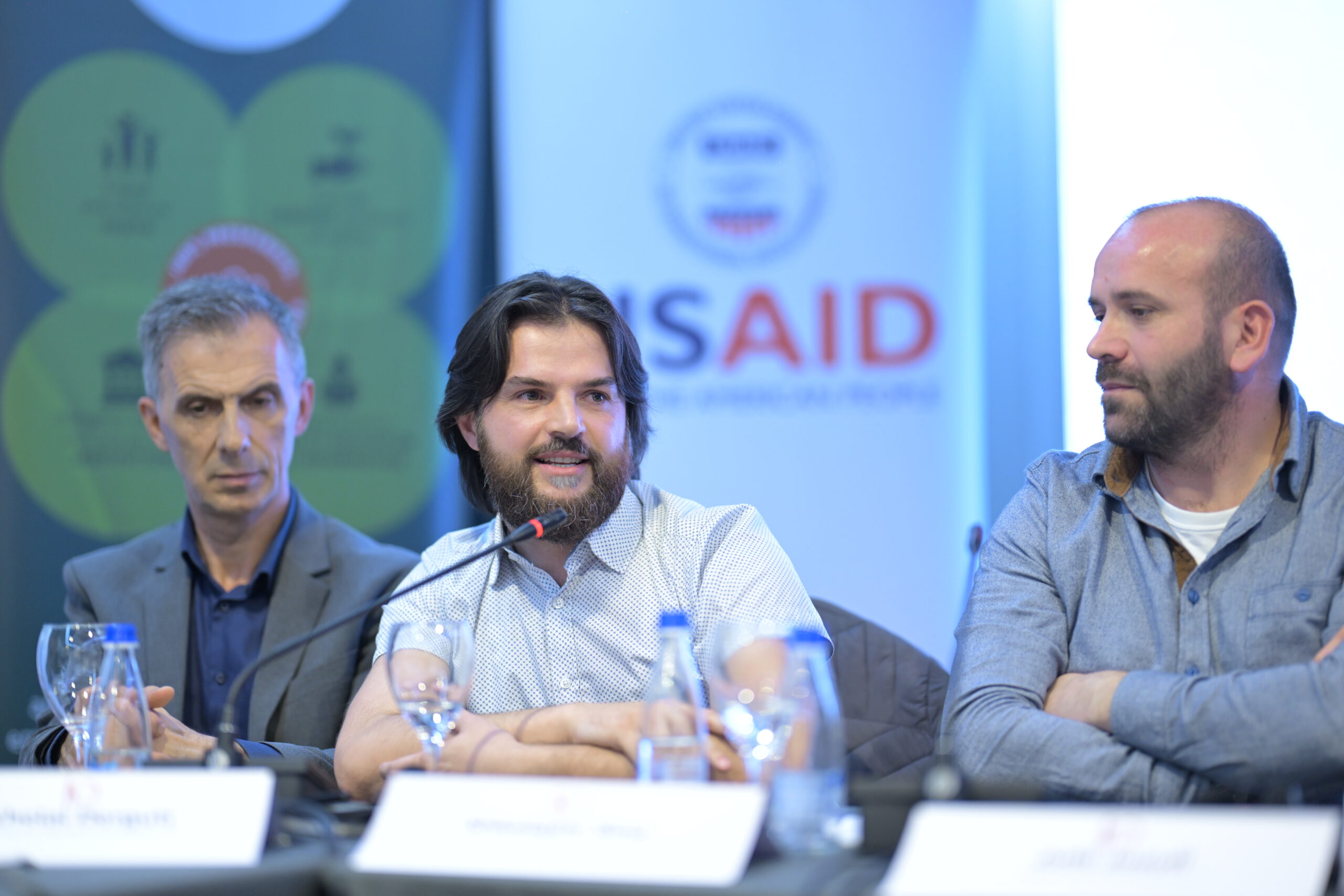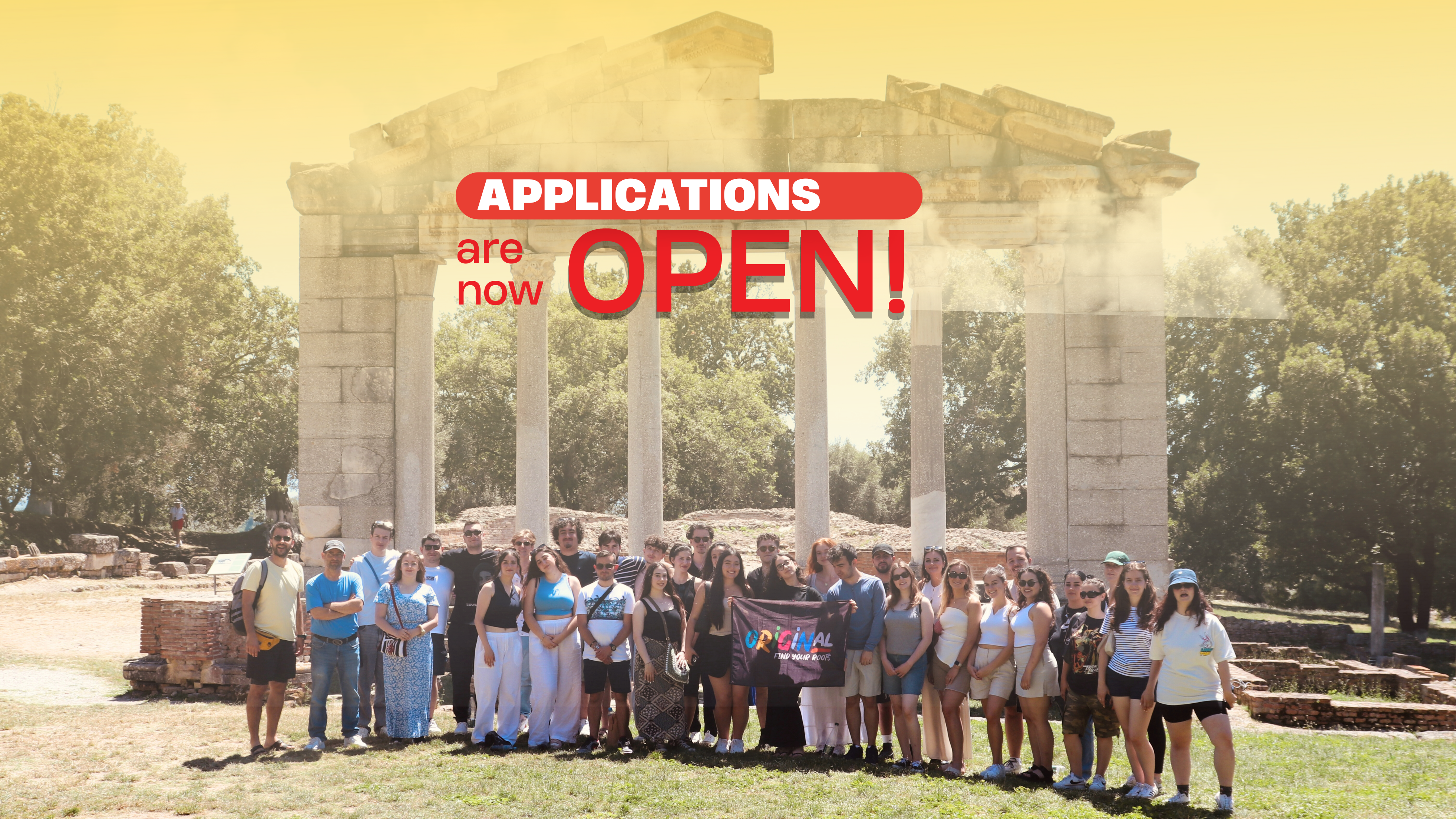

Ermina Lekaj Prljaskaj talks about her work as the ‘voice’ of the Albanian Diaspora in Croatia. She is the first and the only Albanian deputy in the Parliament of the Republic of Croatia and has been the Albanian community’s voice for three mandates in the Croatian state’s highest legislative institution. Originally from Kosova, but raised and educated in Croatia, Mrs. Lekaj-Prljaskaj is one of the most active personalities of the Albanian Diaspora. In an exclusive interview for GERMIN, she talks about the role of Albanians in Croatian society, the challenges of the community, relations with the countries of origin, and her journey in the Croatian parliament.
Interviewer: How do you generally assess the integration of the Albanian community in Croatia and their role in state institutions and the society?
Mrs. Lekaj-Prljaskaj: Albanians are well integrated into Croatian society, proven by their role and contribution over the years. The representation of Albanians at the state institutional level has changed for the better with my arrival as a deputy. In addition to advancing the position at the parliament level, the participation of Albanian youth in institutions has also increased. I addressed this in my first mandate, with the rationale that our youth, the second and third generation here, has benefited and achieved superior education and are contributing to a greater extent to the Croatian society. Therefore, this should also be reflected in their involvement in Croatian public institutions.
Interviewer: Albanians in Croatia have been continuously organized and engaged over the years. What is the current state of community organization, regardless of its form, through associations or individuals?
Mrs. Lekaj-Prljaskaj: Albanians have been organized in community associations since the former Yugoslavia, starting with the Student Association “Skhëndija”, which was culturally and politically active. Meanwhile, during the 90s, associations were established in every prefecture. Associations and other socio-cultural organizations have mobilized Albanians’ economic and social contributions in Croatia. However, Albanians also contributed greatly beyond the economy and culture during the Croatian War of Independence. Many community members were part of the liberation and independence efforts between 1991-1995. The same Albanians, who contributed to the war in Croatia, continued their involvement and contribution during the war in Kosova, giving great support to the resistance movements of our people there.
Today the community organization has advanced in terms of the structure and form. We have many cultural centres across Croatia, and now a multi-functional centre in the heart of Zagreb, Croatia’s Capital. However, participation is not at the level we would like it to be.
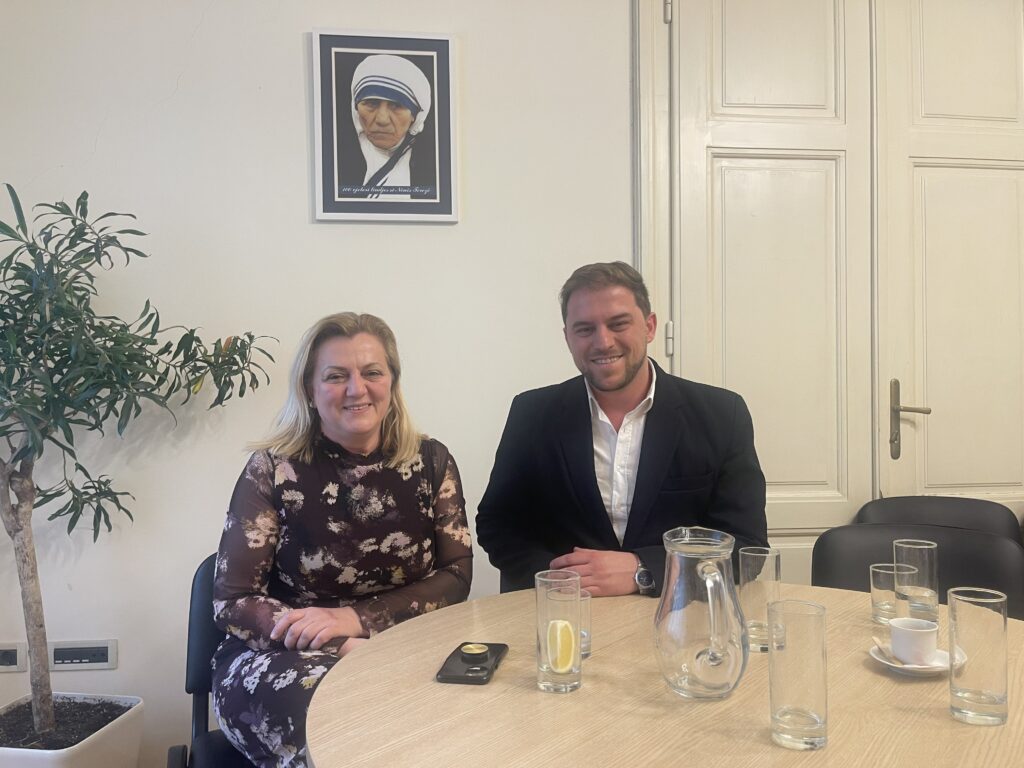
Relations with the Countries of Origin and the Danger of Assimilation
Interviewer: In relation to homeland countries, particularly Kosova and Albania, what is the level of exchanges and support?
Mrs. Lekaj-Prljaskaj: Communication with the mother countries is currently a little weak regarding the support we receive for the Albanian community here. At the official level, I can say that I have good communication with all the institutional representatives. But there is disappointment and higher expectations when I talk about our community.
Our mother countries must do more, especially to preserve and cultivate the language and traditions, because the lack of support means a greater risk of assimilation, especially for the new generations.
To be clear, we do not ask the mother countries for material support, but commitment through various projects such as lobbying to strengthen the position of Albanians here, raising awareness among the diaspora members about the identity and community, etc. Commitment and support are needed to strengthen the community and national values in the context of the 21st century.
Interviewer: What are the biggest challenges facing the Albanian community in Croatia?
One of the challenges, as I mentioned above, is our youth’s low level of involvement. Although there are many associations, barriers still make our youth hesitant to participate and engage in community activities and Croatian institutions.
The risk of assimilation is a challenge in itself. Working as much as possible with the new generations is urgent in this direction, starting with the preschool children. Here, upon my arrival in the Croatian parliament, I noticed other minorities, one thing that impressed me a lot is the Czech minority, which has been in Croatia for 300 years and has very well-organized community organizations, they have kindergartens, primary schools supplementary education in the Czech language, etc.
However, we as Albanians have only managed to have supplementary Albanian language education in 17 schools, with a very small number of students participating. A problem here is also the lack of commitment of parents, who should be more dedicated to their children, especially in cultivating the Albanian language. So, the family should have a greater role in participating in community activities and daily work to cultivate our national language and traditions.
For the Albanian community, regardless of where it is, my message is to work more to cultivate our values and language and not forget where we come from.
Elections and a Fourth Term in the Croatian Parliament
Interviewer: Parliamentary elections will be held soon in Croatia. What are your expectations for a fourth term in parliament?
Mrs. Lekaj-Prljaskaj: The elections are a little specific here as far as the election of the minority MP is concerned. In this regard, I expect all Albanian and other voters’ support. Although I have the support of all the associations, starting from the Union of Albanians, what is more important is the work on the base, that is, communication with the voters and that on the day of the elections, everyone comes out to vote so that we do not allow you to lose our seat in the parliament after a few years. I am a deputy of a specific group, where, in addition to Albanians, Bosniaks, Macedonians, Slovenians and Montenegrins also enter. There is a risk that we will lose our seat if we are not unified. Seeing the work and achievements made so far, other ethnic communities have begun to engage to an extent never seen before to have their representative in the parliament. In this regard, there must be no division among Albanians. I am convinced that we, as Albanians, will be united in this process as well.

